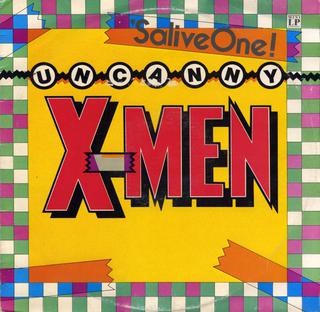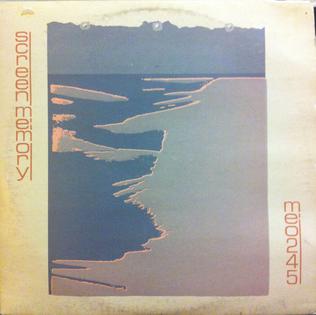Related Research Articles

The Saints were an Australian rock band, originating in Brisbane, Queensland in 1973. The band was founded by Chris Bailey, Ivor Hay (drummer), and Ed Kuepper (guitarist-songwriter). They were initially labeled a punk band because, like American punk rock band the Ramones, the Saints were employing the fast tempos, raucous vocals and "buzzsaw" guitar that characterised early punk rock – although this only reflects a portion of their overall sound. With their debut single "(I'm) Stranded" in September 1976, they became the first punk band outside the US to release a record, ahead of better-known acts the Damned, the Sex Pistols and the Clash. They are considered one of the first and most influential groups of the genre, particularly within Australia.
The Sports were an Australian rock group which performed and recorded between 1976 and 1981. Mainstay members were Stephen Cummings on lead vocals and Robert Glover on bass guitar, with long-term members such as Paul Hitchins on drums, Andrew Pendlebury on lead guitar and vocals, and Martin Armiger on guitar. Their style was similar to both 1970s British pub rock bands and British new wave. The Sports' top forty singles are "Who Listens to the Radio", "Don't Throw Stones", "Strangers on a Train" and "How Come". Their top 20 releases on the Australian Kent Music Report Albums Chart are Don't Throw Stones, Suddenly and Sondra.
The Johnnys are an Australian pub rock band from Sydney forming in 1982 and still active today that combines country and punk musical styles. Members are Graham Hood, Billy Pommer Jr and Slim Doherty and have included founder, Roddy Ray'da and Spencer P. Jones.

Short Cool Ones is a 1996 collaborative album by Wilson Diesel,. The album consists mainly of blues covers, with one original track, "Other Man". It was co-produced by Doug Roberts, Wilson, and Diesel. They released two singles, "I Can't Stand the Rain" (March) and "Strange Love" (May).
Ol' 55 were an Australian band specialising in retro, 1950s-era Rock 'n' Roll. They formed as Fanis in 1972 in Sutherland, Sydney. Drummer Geoff Plummer was working with Glenn A. Baker at the NSW Department of Media and invited Baker to hear his part-time band, including Patrick "Meatballs" Drummond, Rockpile Jones and Jimmy Manzie. In 1975, Baker took on their management, renamed them as Ol' 55 for the Tom Waits song, and recruited front man Frankie J. Holden and, later in the year, saxophonist Wilbur Wilde.
Mondo Rock are an Australian rock band, formed in November 1976 in Melbourne, Victoria. Singer-songwriter Ross Wilson founded the band, following the split of his previous band Daddy Cool. Guitarist Eric McCusker, who joined in 1980, wrote many of the band's hits, and along with Wilson formed the core of the group. They are best known for their second album, Chemistry, which was released in July 1981 and peaked at number 2 on the Australian Kent Music Report. Their song "Come Said the Boy" peaked at number 2 in Australia in 1983.
John Martin Armiger was an Australian musician, record producer and composer. He was one of the singer-songwriters and guitarists with Melbourne-based rock band the Sports from August 1978 to late 1981, which had Top 30 hits on the Kent Music Report Singles Chart with, "Don't Throw Stones" (1979), "Strangers on a Train" (1980) and "How Come" (1981); and Top 20 albums with Don't Throw Stones, Suddenly and Sondra (1981).
Little Heroes were an Australian band formed in 1980, by founding mainstay Roger Hart on lead vocals and guitar. They released three studio albums, Little Heroes, Play by Numbers and Watch the World. Their highest charting hit, "One Perfect Day", which was released in 1982, reached No. 12 on the Kent Music Report Singles Chart. Their other charting singles are "Young Hearts" (1982), "Watch the World" and "Bon Voyage". They disbanded in June 1984.

Ego Is Not a Dirty Word is the second studio album released by Australian pop rock band, Skyhooks, in July 1975. The album was the follow-up to their highly successful debut album, Living in the 70's (1974). As with the former album, it was also produced by Ross Wilson.
Sunnyboys are an Australian power pop band formed in Sydney in 1979. Fronted by singer-songwriter, guitarist Jeremy Oxley, the band "breathed some freshness and vitality into the divergent Sydney scene". Their first two albums, Sunnyboys and Individuals both appeared in the Top 30 of the Australian Kent Music Report Albums Chart.

Talk is the debut album by Australian rock group Paul Kelly and the Dots and was originally released on 30 March 1981 by Mushroom Records and re-released in 1990. Jo Jo Zep & The Falcons leader Joe Camilleri produced seven of the eleven tracks with three tracks produced by Martin Armiger and one by Trevor Lucas. The album spawned the singles, "Recognition", "Billy Baxter" and "Lowdown". Only "Billy Baxter" appeared on the Kent Music Report Singles Chart it peaked at No. 38. The album peaked at No. 44 on the related Albums Chart. All tracks were written by Kelly, including two co-written with guitarist Chris Langman.
The Aliens were an Australian new wave band which formed in April 1978. They were one of the first local bands of the late 1970s to adopt a "uniform" of "black clothes and skinny, white ties". Two of their singles, "Confrontation" and "Follow that Girl", appeared on the Kent Music Report Singles Chart top 50. Australian musicologist, Ian McFarlane, noted their "sound embraced guitar-oriented pop rock with the emphasis on 1960s melodies".
Andrew Scott Pendlebury is an Australian guitarist-songwriter. From 1977 to 1981 was a member of The Sports and from 1986 to 1988 he joined Slaughtermen. He has undertaken other projects and issued four solo albums. At the ARIA Music Awards of 1993, Pendlebury's solo work, Don't Hold Back That Feeling, won the ARIA Award for Best Adult Contemporary Album. From 2003 he has been a member of The Mercurials.
Stars are an Australian country rock band formed in Adelaide, South Australia in 1975 and disbanding in 1979, before re-forming in 2019. Founding members were Glyn Dowding on drums; Malcolm Eastick on guitar and vocals; Mick Pealing on vocals; and Graham Thompson on bass guitar. They were joined by guitarist, songwriter, Andrew Durant in 1976 and relocated to Melbourne. Thompson then left and was replaced by a succession of bass guitarists including Roger McLachlan and Ian McDonald.
Philip John Manning is an Australian blues singer-songwriter and guitarist. Manning has been a member of various groups including Chain and has had a solo career. As a member of Chain, Manning co-wrote their January 1971 single "Black and Blue" which became number one on the Melbourne charts and also Judgement, which reached number two in Sydney. The related album, Toward the Blues followed in September and peaked in the top 10 albums chart.

"Billy Baxter" is a song by Australian rock group Paul Kelly and the Dots, released on 20 October 1980 as the lead single from the album Talk (1981). It was written by band members Paul Kelly and Chris Langman. It peaked at No. 38 on the Australian Kent Music Report Singles Chart. The song was produced by Joe Camilleri for Mushroom Records. In early November the group performed the track on national pop music TV show, Countdown – it was Kelly's first TV appearance. The song's subject, Billy Baxter, is an Australian musician and was a long term member of Coodabeens Footy Show on ABC Radio National.
Bakery were an Australian progressive hard rock band formed in 1970 in Perth. The original line-up was Hank Davis on drums, Mal Logan on keyboards (ex-Rebels), Eddie McDonald on bass guitar (Avengers), Peter Walker on guitar and John Worrall on vocals and flute. They released two albums on Astor Records, Rock Mass for Love and Momento and had a Perth hit with "No Dying in the Dark". Bakery appeared at the Sunbury Pop Festival in January 1973 and disbanded in early 1975.

Sunnyboys is the debut studio album by the Australian power pop group of the same name. It was released in September 1981 on Mushroom Records, which peaked at No. 13 on the Australian Kent Music Report albums chart.

'SaliveOne! is the debut extended play by Australian pop-rock group, Uncanny X-Men. It was released in November 1982 and peaked at No. 40 on the Kent Music Report Singles Chart. The EP was recorded live-in-the-studio in one day, two days after signing with Mushroom Records.

Screen Memory is the first and only studio album by Australian new wave band MEO 245. The album peaked at No. 69 on the Kent Music Report Albums Chart. It was produced by Peter Dawkins, with Dave Marett as audio engineer, at Studios 301, Sydney. According to Australian musicologist, Ian McFarlane, "[the] title was taken from A Critical Dictionary of Psychoanalysis and the record itself was full of English-influenced pop rock." The album provided two singles, "Other Places" and "Jewels " (October). For Screen Memory MEO 245's line-up was Paul Brickhill on keyboards and vocals; Mark Kellett on bass guitar; Campbell Laird on drum kit; and Paul Northam on vocals and guitar.
References
- 1 2 3 4 5 6 7 8 McFarlane, Ian (1999). "Encyclopedia entry for 'MEO 245'". Encyclopedia of Australian Rock and Pop . St Leonards, NSW: Allen & Unwin. ISBN 1-86508-072-1. Archived from the original on 13 May 2003.
- ↑ MEO 245 (1981), Screen memory, Mushroom Records , retrieved 25 October 2017
- 1 2 3 Kent, David (1993). Australian Chart Book 1970–1992 . St Ives, NSW: Australian Chart Book Ltd. ISBN 0-646-11917-6. Note: Used for Australian Singles and Albums charting from 1974 until Australian Recording Industry Association (ARIA) created their own charts in mid-1988. In 1992, Kent back calculated chart positions for 1970–1974.
- ↑ MEO 245 (1982), Screen Memory, Mushroom Records, retrieved 25 October 2017 Note: this source erroneously titles the extended play as Screen Memory.